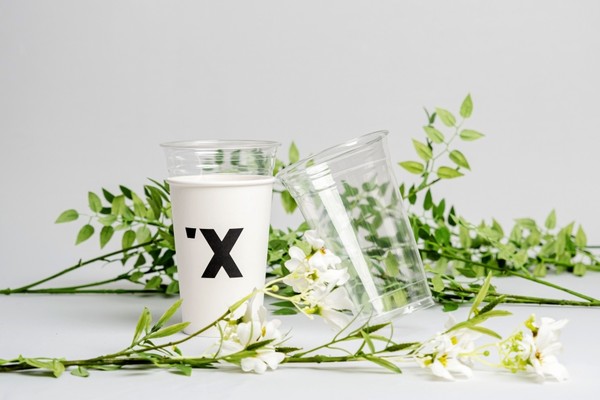
In September 2020, according to the Ministry of Environment, 14 coffee shops that signed a disposable product reduction agreement with the Ministry of Environment used 1.34567 million disposable cups over the five years. Wasted resources and disposal costs for producing disposable goods are increasing day by day, so environmental pollution is causing a serious situation. Therefore, it is necessary to maintain the ban on the use of disposable products to reduce plastic and carbon emissions, and encourage the use of reusable cups, which are more hygienic than disposable cups.
First, regulations on disposable products have a great effect on reducing the amount of plastic used. In June 2018, the Ministry of Environment implemented disposable product regulations[1] for café and fast food stores, and as a result, the amount of disposable cups used in stores decreased by more than two-thirds. In addition, since the enforcement of the disposable product regulation, which took effect in November of last year, the amount of plastic waste has decreased by about 69 kg on a national average per month. According to the United Nations Environment Program (UNEP) announced in 2016, about 90% of the garbage that flows into the sea is plastic. Plastic waste thrown into the sea has a great impact on polluting the marine ecosystem because it takes about 20 years to be decomposed. These plastics go beyond polluting the sea and become food for sea creatures. Therefore, if humans ingest sea creatures that have ingested microplastics less than 1 mm, it will be serious problem. Since plastics pose a great threat to sea creatures and humans, it must be reduced through regulation. Second, cups for shop are more hygienic than disposable cups. Disposable cups are made by injecting raw materials such as polyethylene and polystyrene into an injection molding machine, compression, molding, and post-processing. At this time, the disposables are exposed by various chemicals and dust, and it is not hygienic because most of cafes are not sterilize disposable cups separately. In 2020, as a result of measuring the contamination level[2] of the reusable cup and disposable cup used in the cafe by Trashbusters[3], the reusable came out as ‘14’, and the disposable cup’s contamination level was measured as ‘125’. According to this result, since disposable cups are less sanitary than reusable cups, it is more reasonable to use multi-use cups for health beyond environment. Third, reusable containers have a lower carbon footprint than disposable containers. Among the gases that cause the greenhouse effect[4] in the Earth's atmosphere, carbon dioxide plays the largest role. In other words, the more carbon emitted, the higher the temperature of the earth. Therefore, in order to prevent global warming due to the greenhouse effect, carbon emissions must be reduced. However, disposable cups used in cafes have a much higher carbon footprint than reusable cups. As the number of times the container is used increases, the gap in cumulative carbon emissions increases noticeably. When used 180 times, the cumulative carbon emission of disposable containers is 22 times as much as reusable containers, and 35 times when used 365 times. In December 2020, in a collaborative study between Zero Waste Europe and Utrecht University, it was announced that multi-use containers such as pottery, glass bottles, and crates have lower carbon emissions than disposable containers. More specifically, a single-use plastic cup emits about twice as much carbon as a glass cup. Therefore, the Korean goverment must continue to regulate disposable cups to reduce carbon emissions.
In June 2020, the Organization for Economic Cooperation and Development (OECD) warned that the amount of plastic waste has nearly doubled over the past 20 years from 156 million tons to 353 million tons. This is enough to make 35 thousand Eiffel Tower. If plastic is used indiscriminately, environmental pollution will grow out of control. Therefore, the Korean government should not abolish regulation of disposable products as it is now at cafes.
In November 2022, the Ministry of Environment provide a sufficient grace period for a one-year ahead of the expanded enforcement of disposable product use regulations in cafes and restaurants. This is the result of accepting the opinion by related industries such as self-employed people, are burdened with the implementation of the bill. Controversy is brewing over the government's policy. The Korean government should have to decide considering both the opinions that complain about the inconvenience caused by the regulations and another that the regulations should be maintained for environmental protection.

